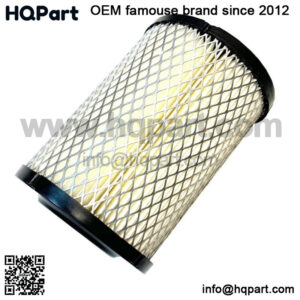How often you have to change the air filters may be on the following:
- Air filter design
- Overall indoor air quality
- Quantity of pets
- Household size
- Air pollution levels and construction near the residence
- The MERV Rating
For basic 1″–3″ air filters, brands generally tell you to exchange them every 30–90 days. If someone in your family suffers from light to moderate allergies, you can put in a better air filter or change them even more frequently.
The shortest answer to “how often do I have to exchange the air filter?”:
If there isn’t a smoker or pets in your home, and your filter is the commonly sold 1″ filter with a MERV rating of 4, you should be able to wait up to 90 days before changing it.
What air filter models last longer?
Some air filters are supposed to survive up to six months, while others have to be exchanged monthly. The denser the air filter, the longer it should last. Overall, you can examine the thickness of the filter rather than the brand. You also need to take a look at the MERV Rating.
The MERV Rating is a scale that goes from 1-20 and assesses how well an air filter can remove particles out of the air. The higher the MERV Rating, the smaller the particle that can be caught by the air filter.
While a filter with a higher MERV Rating should last longer, it can also restrict the flow of air in your home. And you will need to change the filter more often. And if you acquire an older system, plan to replace the filter more often to maintain the quality of your filter.
How regularly do I need to replace my air filter based on thickness?
The longevity of an air filter also hinges on its thickness. A 1″ filter will have to be swapped out more frequently instead of a 4″ filter.
- A 1″ pleated air filter must be replaced every 30-60 days.
- A 2″ pleated air filter should be swapped out every 3 months.
- A 3” pleated air filter should be changed out every 120 days.
- A 4″ pleated air filter should be exchanged every 6 months.
- A 5” or 6″ pleated air filter ought to be replaced every 9-12 months.
One of the advantages of denser filters is not only do they live longer, but they also posses a better MERV Rating. This means they should do a better job of eliminating the particles within your home. They also generate less air resistance, which can help ones HVAC system run more effectively and reduce wear and tear on components including the blower motor.
If you own a whole-home air purifier, you will also need to switch out the filters more regularly.
How often should I exchange my air filter if I have a dog or cat?
If you want pets, you might need to switch out your air filter more regularly. Pet hair and dander can easily clog an air filter and reduce its effectiveness. For each shedding dog you have, expect to replace the filter a month sooner than you would with a home without pets. The same applies to cats, although they usually do not shed as much as dogs. If you want a hypoallergenic or non-shedding dog or cat, you might not have to replace your air filter as much.
Even though it’s a good rule of thumb, you will need to check on your air filter more frequently to figure out if it has to be swapped out. Dogs tend not to shed the same amount year-round. They shed more in the spring and fall when they are blowing their coat. Inspect the air filter every month and exchange it when it looks clogged.
Here are averages that may help you understand how regularly you should install a new air filter at your residence:
- Vacation house or an individual occupant and no pets or allergies: every 6–12 months
- Common suburban home without pets: every 3 months
- A single dog or cat: every 2 months
- More than one pet or if anyone has allergies: 20–45 days

